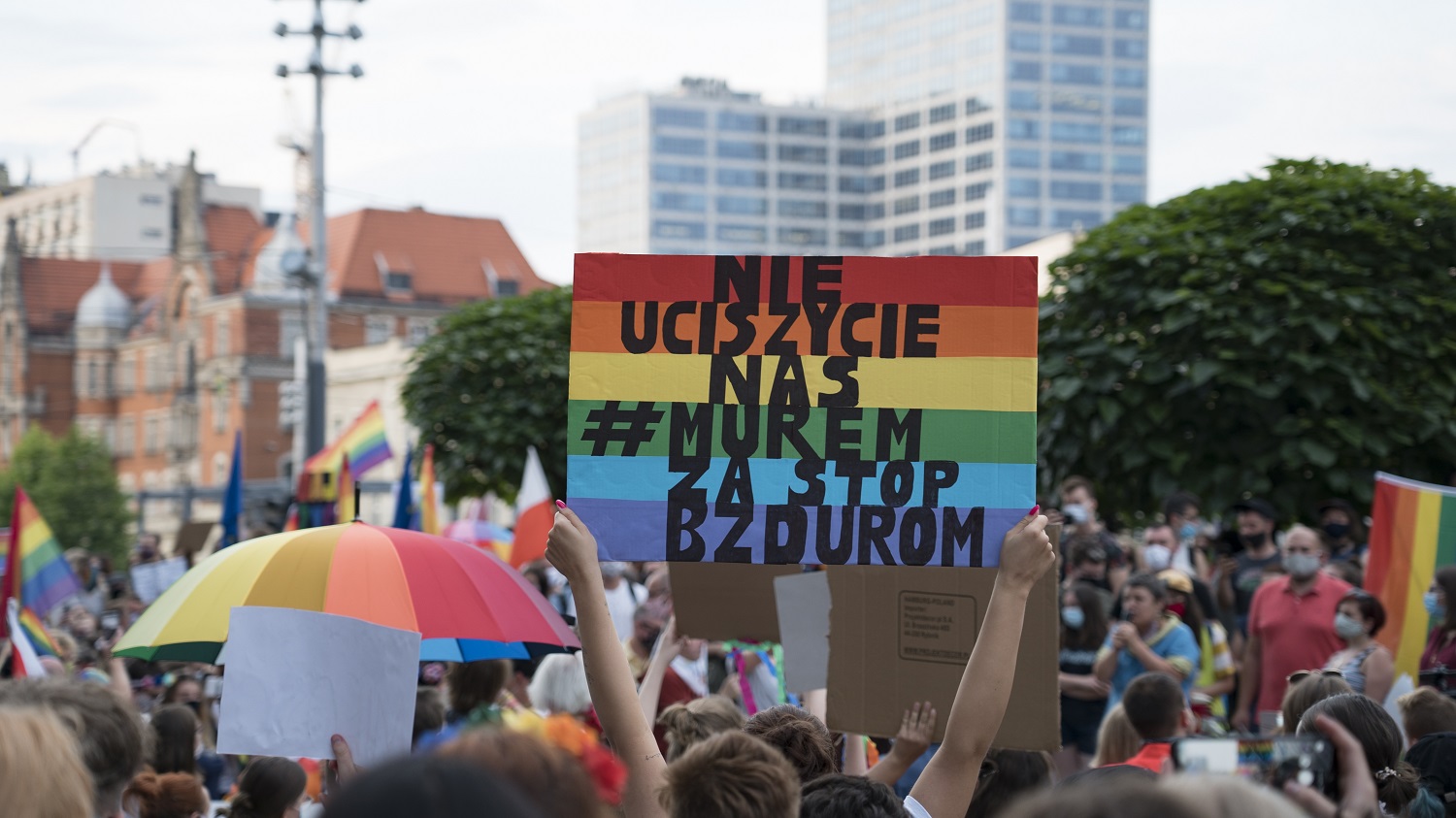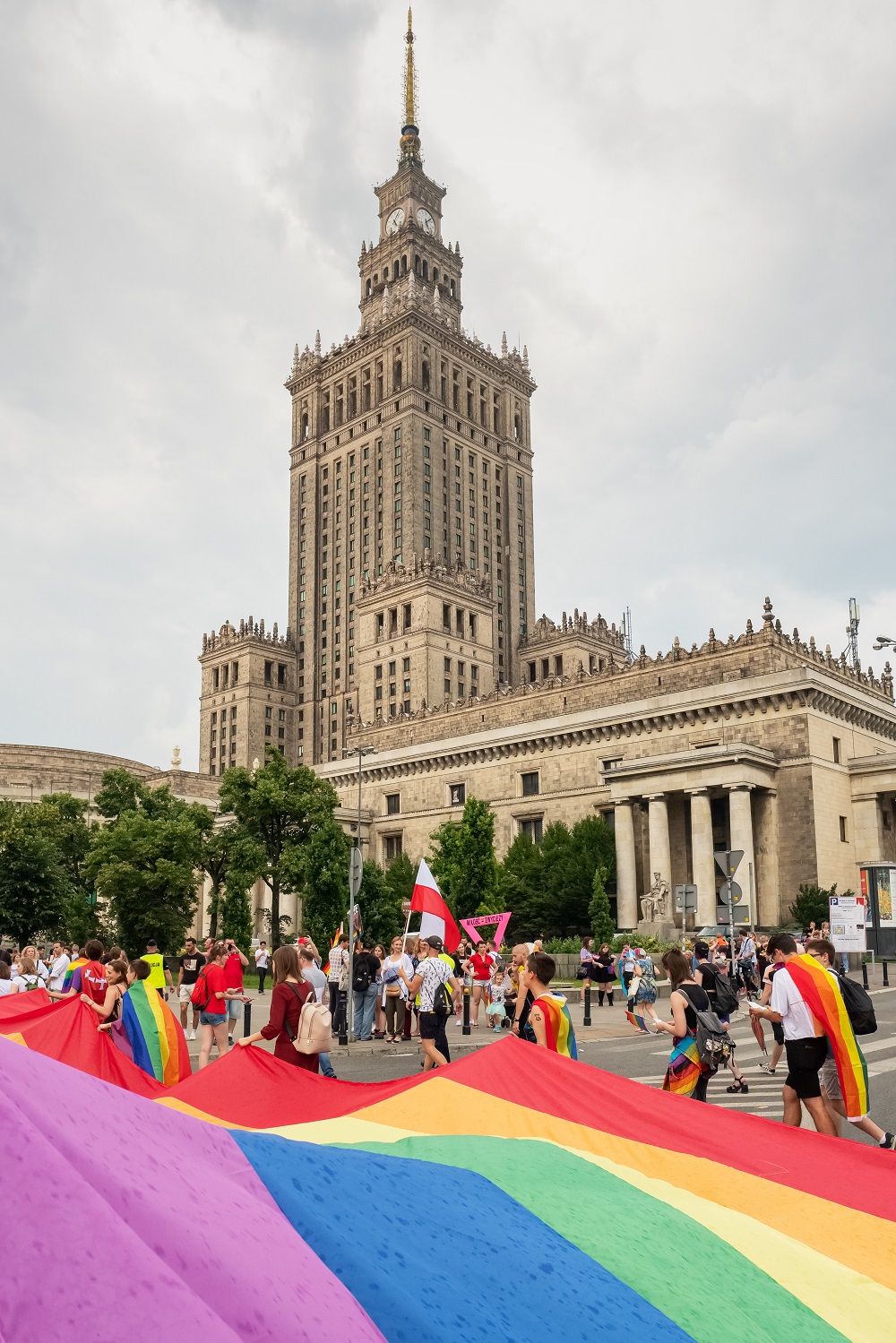„These countries will not achieve their growth goals unless they become more open and supportive of LGBT+ rights”
Interview with George Perlov, Eastern Europe Programme Lead at Open For Business
Open For Business’ latest report looks at the impact of state homophobia on the economy in Hungary, Romania, Poland and the Ukraine. Long story short, it is terrible. According to the report, it costs these states billions of dollars to be dismissive of LGBTQ people. But the solution is not necessarily in the hands of politicians, rather employers. But how do you measure homophobia in economic terms? What economic impacts are we talking about exactly? What is the role of companies? We spoke to George Perlov, the author of the report.

What do we need to know about Open For Business? What research is behind you and what are your primary goals?
Open For Business was established in 2015 at the Clinton Global Initiative Annual Summit to make the economic case for LGBT+ inclusion, with a focus on countries where LGBT+ rights are limited. Our research to date has focused on 27 propositions or arguments for LGBT+ inclusion at the economic, business, and individual level. We work with a coalition of global businesses to help promote this research and support LGBT+ rights at the global and local level.
What drew your attention to the Central and Eastern European region?
The countries we selected for focus in this report – Hungary, Poland, Romania, and the Ukraine – have been growing at a moderate pace economically for the last few years. They all have ambitious growth goals, but at the same time, generally poor and worsening records on LGBT+ rights. Our belief from the research we have done previously is that these countries will not achieve their growth goals unless they become more open and supportive of LGBT+ rights.
You have examined several regions so far. What were the main similarities between other countries and our region when it comes to the relationship between homophobia and the economy?
In East Africa and the Caribbean, where most of our work has been done to date (Caribbean report to be published in the coming months) as well as in Central & Eastern Europe (CEE) we see much homophobia sparked by political and religious leaders trying to scapegoat LGBT+ people for other issues facing these countries. Ultimately, we see this correlated to many economic issues, including poor national reputations, brain drain not just among LGBT+ people but also among other more liberally minded people. We also see less interest among multinational employees to relocate in these regions.
From the same point of view, it may also be interesting to know the peculiarities of the region.
Economically, the countries selected, especially Hungary and Poland, have been growing their GDP. Yet at the same time, they have also come under scrutiny from the EU and other international authorities for larger human rights and democratic abuses.

It may sound very strange, in fact, perhaps, people may be skeptical that the economic value of homophobia can be calculated. What were the methods, who were the participants?
As there is very little data available on LGBT+ people for a variety of reasons, including privacy issues, our estimates used data primarily from two sources, health inequities that affect the LGBT+ population disproportionately, and wage gap, both of which are impacted by LGBT+ discrimination. In this case, we explored depression and HIV/AIDS and the excess costs to society from this discrimination. We used the same method that our colleague Lee Badgett used to measure this cost in India and other locations. Similarly, our estimate on wage gap is based on recent studies from the UK and Germany.
We did not add into our estimates the more recent cancellation of Norway/EEA grants to areas in Poland’s „LGBT-Free Zones,” for example. Over time, we hope to quantify with a monetary amount some of the other indirect issues such as reputation and brain drain that we reported on as well.
Hungary was the best in the region, we are still talking about a loss of billions of forints. Do we know why the situation in Hungary is better? Could this mean that otherwise homophobic politics are less homophobic in our country than in the other three countries?
Per the above, the cost of discrimination was lower in Hungary than other countries for a couple of reasons. Population-wise, it is much smaller than the other three countries. We also saw lower incidence levels of reported depression and HIV/AIDS among LGBT+ people.
In Hungary, an exclusionary narrative by the government has been felt for more than ten years, but in the last two years it has become really strong. Is this showing in the indicators, or does homophobia have a slower economic impact?
As the only country of the four studied that allows same-sex partnerships, Hungary scores higher on the F&M Global Barometers scale (the index we used to compare against economic data). Unfortunately, their latest data is from 2018, and it is expected that their scores for the last few years will decline.
How can treating HIV/AIDS patients affect the economy?
Research by our colleague Lee Badgett finds that LGBT+ stigma and shame are documented factors in men having sex with men without proper protection. When all people feel valued in society, and not stigmatized, these infections and costs to treat them will decline.
We are talking about a national economy and homophobic politics. How does it come to mind that companies need to pursue open company policies and create an inclusive environment?
When governments don’t support LGBT+ rights or choose to actively persecute LGBT+ people, we see that companies often take more leadership roles in this area. As we noted in the Irish case study in the report, companies that had strong diversity and inclusion (D&I) practices were ready to support legislative issues that affected LGBT+ people, in the Irish case that was openly supporting the marriage referendum. Thanks to the efforts of groups like We Are Open in Hungary, companies now have active forums to discuss their inclusionary policies and take collective actions through their campaigns.

Can LGBTQ people really be affected if, although the big policy is dismissive of them, their workplace is supportive?
Ultimately, we believe that legal rights need to be changed in order for all people to live their lives freely and openly. The work of companies to provide supportive policies in countries where these rights are not yet available is a good start.
What can companies do if they want to pursue a pro LGBTQ company policy? What do you need to pay the most attention to?
The good news is that many large companies like Accenture, Deloitte, Google and others are sharing their best practices in the field. It is a combination of practices relating to recruitment, employee retainment, mentoring, and allyship programs that seem to work best at these companies.
It’s one thing for a company to have an acceptance policy, but what can a company do to end homophobia among colleagues? Not to mention that, for example, someone may simply not know how to treat a transgender employee non-abusively.
This is true. However, in researching the report, I heard many aspirational stories from dedicated human resources staff and senior managers who personally reached out to help trans or other colleagues who might struggle to fit in to feel more at home or take a very strong „zero-tolerance” policy around any employee abuse.
Can changes in company policies have an impact on government policy in the long run?
Per the Irish case study mentioned above in the report, we believe that the business community has a moral and business imperative to be more active and outspoken on these topics, starting with supporting strong D&I policies.
Government leaders in this region and elsewhere are often more likely to listen to business leaders than human rights leaders. It’s our hope that our report and the dialogue it ignites among collective groups of business leaders in the future will help effect policy change over time.
Kanicsár Ádám András
Instagram: @kanicsar






